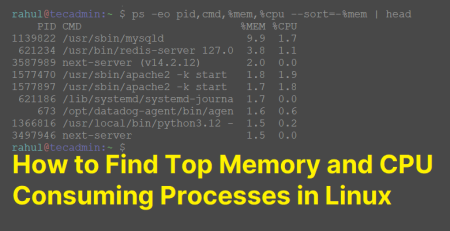This tutorial will help you to remove the start and ending double quotes from strings in a shell script. Where the string is stored in a variable.
Remove Double Quote from a String
The sed command line utility helps to easily handle this. A single-line sed command can remove quotes from the start and end of the string.
sed -e 's/^"//' -e 's/"$//' <<<"$var1"
The above sed command executes two expressions against the variable value.
- The first expression
's/^"//'will remove the starting quote from the string. - Second expression
's/"$//'will remove the ending quote from the string.
Remove Double Quote and Store Output
The result will be printed on the terminal. You can also save the result to a variable and or redirect output to a file.
The below commands will help you to remove double quotes and store output to the same or different variable.
var2=`sed -e 's/^"//' -e 's/"$//' <<<"$var1"`#Save in another variable var1=`sed -e 's/^"//' -e 's/"$//' <<<"$var1"`#Save in same variable
Even you can store the result in a file. like:
sed -e 's/^"//' -e 's/"$//' <<<"$var1" > out_var.txt
Conclusion
This tutorial helped you to remove the start and ending double quotes from a string stored in a variable using shell script.



4 Comments
Re-sent due to typo 🙁
(missing “$”)
If you are using bash there is a far more efficient solution, without the need to invoke an external program (sed):
var2=”{var1%\”}”; var2=”${var2#\”}”
If you definitely know from the context that *both* double quotes are really present within var1, then there is an even more efficient solution:
var2=”${var1:1:-1}”
Not sure in case of other shells.
Warning in case you copy+paste the command lines from this comment:
The forum software seems to capriciously change ordinary double quotes into typographical ones!
Heck, this wasn’t a typo!
Dear Moderator,
in fact, your forum software swallowed the missing “$” AGAIN !
I’m afraid, your software is getting confused by the double quotes when trying to convert then to the allegedly “correct” typographical ones. (I’m hating such software highhandedness 😉 )
Please add the “$” before the first left brace in the first command line in my comment.
Thank you
If you are using bash there is a far more efficient solution, without the need to invoke an external program (sed):
var2=”{var1%\”}”; var2=”${var2#\”}”
If you definitely know from the context that *both* double quotes are really present within var1, then there is an even more efficient solution:
var2=”${var1:1:-1}”
Not sure in case of other shells.
Or just {var1//\”}